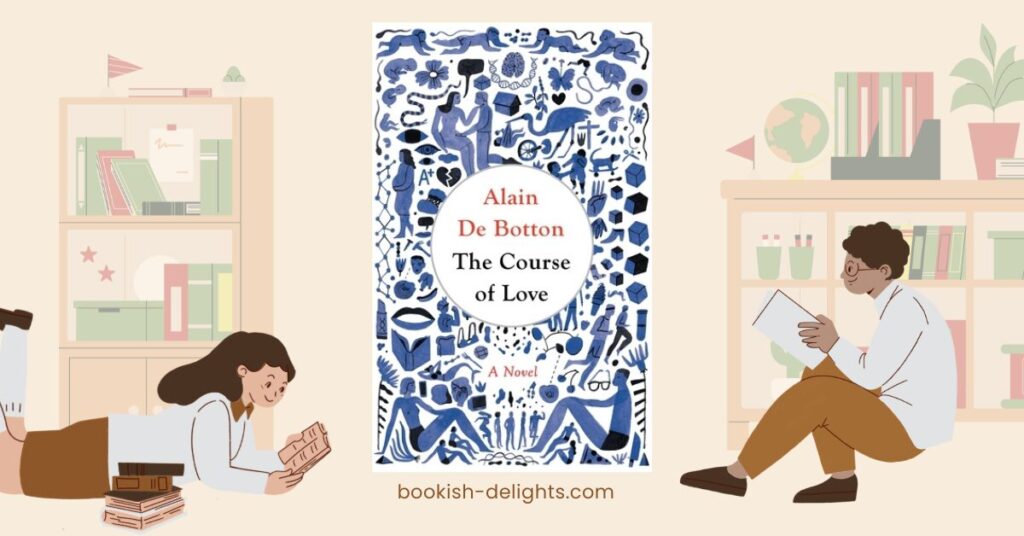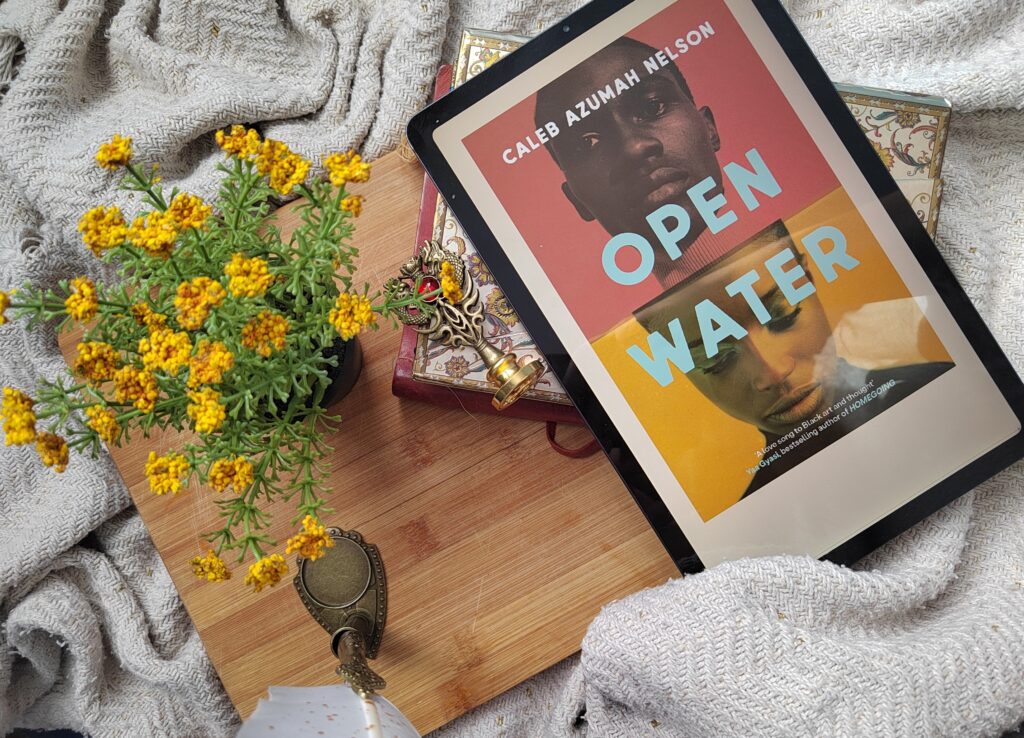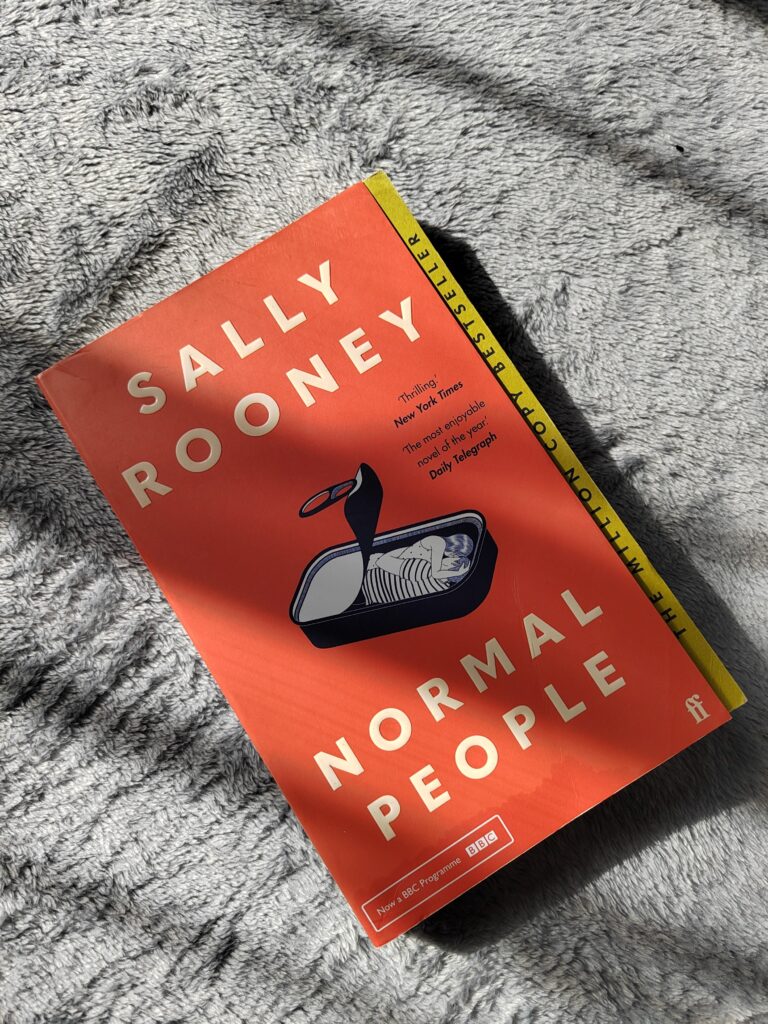What does it mean to truly love someone? Is love a choice, a destiny, or something in between? If you’ve ever pondered these questions, you’re not alone—and thankfully, literature is full of novels that dive deep into the philosophical heart of love.
As someone who has spent countless hours lost in novels that balance love and philosophy, I’ve found them to be more than just a source of comfort; they’re a way to better understand the human condition. These books challenge us to think deeply about connection, meaning, and what it truly means to love and be loved.
This list isn’t just a collection of love stories — it’s a window into how authors grapple with the weight of love and its role in shaping who we are. So, whether you’re looking for inspiration or insight, here are novels that will leave you pondering long after you turn the last page.
The Unbearable Lightness of Being by Milan Kundera

Few novels capture the philosophical dimensions of love as poignantly as The Unbearable Lightness of Being. Set against the backdrop of Soviet-occupied Czechoslovakia, Kundera’s novel weaves a tale of love, fidelity, and existential freedom. Through the intertwined lives of Tomas, Tereza, Sabina, and Franz, Kundera explores the tensions between the lightness of fleeting pleasure and the weight of commitment and responsibility.
At the heart of the novel is a question: Is love an unbearable burden, or does it give our lives meaning? For Tomas, a womanizer grappling with his desire for freedom, love is both liberating and confining. For Tereza, who seeks permanence and connection, it is both salvation and suffering. The novel’s brilliance lies in its refusal to offer easy answers, instead challenging readers to consider the paradoxes inherent in love.
Kundera’s prose doesn’t just tell a story; it asks us to reflect on the nature of existence. And perhaps that’s the magic of The Unbearable Lightness of Being — it makes us question whether love is light or heavy, and whether one can exist without the other.
“Love is the longing for the half of ourselves we have lost.”
If Beale Street Could Talk by James Baldwin

James Baldwin’s If Beale Street Could Talk is more than a love story; it’s a profound exploration of the resilience of love in the face of systemic injustice. Set in 1970s Harlem, the novel follows Tish and Fonny, a young Black couple whose lives are upended when Fonny is wrongfully imprisoned. Through their unwavering bond, Baldwin examines love not just as a romantic ideal but as an act of resistance and a source of strength.
What makes Baldwin’s portrayal of love so striking is its tenderness. Even amid despair, Tish and Fonny’s devotion to one another becomes a lifeline, a reminder of the humanity that oppressive systems seek to erase. Baldwin doesn’t shy away from the harsh realities of racial injustice, but he also imbues the story with a deep sense of hope — the belief that love can endure, even when the world seems determined to tear it apart.
“Love brought you here. If you trusted love this far, don’t panic now. Trust it all the way.”
The Course of Love by Alain de Botton

Alain de Botton’s The Course of Love is a novel unlike most love stories. Rather than focusing on the magic of falling in love, it explores what comes after — the realities, complexities, and quiet triumphs of sustaining it. Through the lives of Rabih and Kirsten, a couple navigating marriage, parenthood, and personal growth, de Botton unpacks the philosophical underpinnings of long-term love.
What sets this novel apart is its blend of fiction and philosophical commentary. De Botton interrupts the narrative with insightful reflections on the nature of love, commitment, and human imperfection. He portrays love not as a fairy tale but as a skill — one that requires patience, empathy, and a willingness to confront both the flaws in our partners and in ourselves.
“Compatibility is an achievement of love; it must not be its precondition.”
Cleopatra and Frankenstein by Coco Mellors

Coco Mellors’ Cleopatra and Frankenstein is a raw and introspective examination of love’s complexities, especially in the context of personal and emotional growth. The novel follows Cleopatra, a young artist from England, and Frankenstein, an older, emotionally distant American businessman, whose whirlwind romance evolves into something much more complicated and profound than either expected.
Mellors’ exploration of love is steeped in philosophical questions about the tension between idealism and reality. The characters’ relationship highlights the stark differences between their dreams of romantic fulfillment and the messy, often painful truths that love demands. Through their union, the novel examines how people come together and grow apart, how love can both inspire and challenge personal transformation.
What makes Cleopatra and Frankenstein so compelling is its unflinching look at the contradictions in love — the longing for connection paired with the fear of losing oneself. The book asks whether we can truly find happiness in another person, or if love is ultimately about learning to reconcile the self with the other.
“You can’t save anyone, no matter how much you love them.”
The Lover by Marguerite Duras

Marguerite Duras’ The Lover is a haunting exploration of love’s complexities, focusing on the passionate, forbidden affair between a young French girl and her Chinese lover in colonial Vietnam. Through vivid, sensual prose, Duras examines not only the intimate dynamics of this relationship but also the broader themes of societal expectations, race, and desire.
What makes The Lover particularly powerful is its ability to convey love as both an intoxicating, transformative force and a site of profound tension. The novel challenges traditional notions of romance, presenting love not as an idealized union but as a raw, often conflicting experience. The relationship between the protagonist and her lover is marked by both liberation and constraint — their passion is thwarted by cultural taboos and family pressures, yet it also serves as a form of escape from their respective realities.
“The lover’s eyes, the eyes of a man who has lost everything, are not the same as the eyes of a man who has everything.”
Love in the Time of Cholera by Gabriel García Márquez

Gabriel García Márquez’s Love in the Time of Cholera is a timeless exploration of love’s endurance, its complexities, and its transformative power. Set against the backdrop of a Caribbean town ravaged by both disease and social constraints, the novel follows the long and tumultuous romance between Florentino Ariza and Fermina Daza, who are separated for decades by circumstance, yet never forget one another.
At its heart, the novel explores the idea of love as both a force of nature and a choice. García Márquez contrasts youthful, idealistic love with the steady, sometimes stifling love of marriage. Through Florentino’s obsessive devotion and Fermina’s eventual reconnection with him in old age, Love in the Time of Cholera meditates on the passage of time, the fleeting nature of beauty, and the resilience of love in the face of life’s inevitable disappointments.
What sets this novel apart is how it reveals love in all its forms: passionate and fleeting, enduring and unrequited. García Márquez challenges the notion of love as an eternal, perfect feeling, instead presenting it as something that can evolve and deepen over time, even amidst loss and regret.
“It’s never too late to begin again.”
Open Water by Caleb Azumah Nelson

In Open Water, Caleb Azumah Nelson crafts a tender and poetic exploration of love, identity, and vulnerability. Set in contemporary London, the novel follows the deeply emotional connection between two young Black artists, who navigate the complexities of their relationship amidst the weight of racial identity, personal insecurities, and societal expectations.
Nelson’s novel is both a love story and an intimate meditation on what it means to truly see and be seen by another person. The protagonists’ bond is fragile yet intense, defined by their shared experiences of longing and fear, as well as their hesitations in fully surrendering to love. Nelson’s lyrical prose illuminates the vulnerability inherent in intimacy, depicting how love can be both a source of refuge and a mirror that reveals our deepest fears.
Open Water also meditates on the intersection of love and creativity, exploring how the characters’ art reflects and shapes their emotional landscapes. This novel shows love not as a flawless ideal but as a messy, beautiful, and often painful journey of self-discovery and connection.
“I think about how love is a thing that you have to let go of for it to be real.”

Normal People by Sally Rooney

Sally Rooney’s Normal People is a poignant and astutely observed exploration of love’s complexities, particularly in the context of youth, class, and identity. The novel traces the evolving relationship between Connell and Marianne, two Irish teenagers from different social backgrounds, as they navigate love, friendship, and personal growth throughout their years in school and university.
Rooney’s exploration of romantic love is profoundly philosophical, delving into the tensions between desire, vulnerability, and emotional intimacy. Connell and Marianne’s relationship is defined by an ongoing dance of closeness and distance, as they struggle to communicate their deepest feelings, sometimes to the detriment of their connection. The novel captures the awkwardness and rawness of young love, while also examining how it transforms as the characters mature and confront their individual insecurities.
What makes Normal People so compelling is its realistic portrayal of the messiness of relationships, where love isn’t a perfect ideal but a complex, ever-changing force that shapes the characters’ identities. Rooney reminds us that love, in its truest form, is not about perfection but about the courage to remain open and vulnerable.
“We’re all just people, you know,” she said. “We’re not really anything special.”

Key Philosophical Themes in Love Stories
Romantic love is one of literature’s most enduring subjects, but the best love stories don’t just recount passion and heartbreak — they question whatt love says about human existence. Here are some key philosophical themes that these novels often explore:
- The Nature of Desire
Many love stories probe the origins and effects of desire. What drives us to yearn for another person? Is desire inherently selfish, or can it lead to profound selflessness? Novels like The Unbearable Lightness of Being by Milan Kundera wrestle with the tension between fleeting lust and enduring connection. - Love and Identity
Love often acts as a mirror, reflecting parts of ourselves we may not fully understand. Books like Sally Rooney’s Normal People examine how relationships shape our sense of self and whether we can truly know ourselves outside of the people we love. - The Passage of Time
Love stories frequently explore how time affects relationships. Does love deepen and mature, or does it inevitably fade? Gabriel García Márquez’s Love in the Time of Cholera provides a lyrical meditation on how love evolves — or endures — over a lifetime. - The Ethics of Love
What do we owe to those we love? This theme often appears in narratives of betrayal, sacrifice, or moral ambiguity. Works like Anna Karenina by Leo Tolstoy or Alain de Botton’s The Course of Love examine the ethical dilemmas that arise in romantic entanglements. - Love and Freedom
Can true love exist without freedom? Many novels grapple with the balance between intimacy and individuality. Marguerite Duras’s The Lover explores the paradox of feeling simultaneously liberated and constrained within love. - The Search for Meaning
Love often becomes a lens through which characters search for meaning in their lives. Books like Call Me by Your Name by André Aciman reveal how love, even when fleeting, can leave an indelible mark on our understanding of beauty, loss, and purpose.
Love and The Human Condition
Romantic love, at its core, is deeply tied to what it means to be human. It is both universal and intensely personal, a force capable of bridging cultures, generations, and individual experiences. In literature, love is often depicted as a microcosm of the broader human condition — a stage where the complexities of our existence are played out in the most intimate ways.
At its best, love reveals our capacity for connection and vulnerability. It challenges us to transcend selfishness and see another person as fully and profoundly as we wish to be seen. This kind of mutual recognition is at the heart of novels like The Course of Love by Alain de Botton, which portrays love as a space for personal growth and shared discovery.
Yet, love also confronts us with our limitations — our fears, insecurities, and capacity for pain. In The Sorrows of Young Werther by Goethe, unrequited love becomes a lens through which the protagonist wrestles with loneliness and existential despair. Such stories show how love can amplify both joy and suffering, forcing us to reckon with the dualities of life.
Love stories often grapple with the impermanence of life. Whether through the inevitability of loss or the passage of time, these tales remind us that love, like all human experiences, is transient. Gabriel García Márquez’s Love in the Time of Cholera poignantly examines how love’s endurance is shaped by memory, longing, and the relentless march of time.
Discover more from Bookish Delights
Subscribe to get the latest posts sent to your email.
